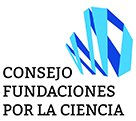Jem, Dallas, Liz and Yan are the presenters of Bang goes the theory, a popular science program that has three and a half million viewers and which is broadcast during BBC One’s primetime schedule. Each week, they conduct large-scale experiments with a spectacular staging. And three of them are scientists. “The presenters are flexible, they’ll try anything and are great actors” explained executive producer, Paul King.
He called for a collaborative approach between scientists and journalists. “To bring science to the public we have to forget the white coat syndrome and stop thinking of scientists as marginal beings living in their ivory towers.” The request neatly sums up the spirit of the round table organized by the Esteve Foundation, the RTVE Institute and Indagando TV and the course that preceded it, which sought to explain in a practical way the functioning of the media to scientists.
Do Scientists and Journalists share the same interests? No unanimous answer was arrived at but if anything became clear at the meeting held on November 17, 2011, then it was that understanding is needed for a common good: to promote scientific culture. Manuel Seara, director of RNE’s On the shoulders of giants, was asked to moderate this open discussion with three major figures working in European science communication. “Our wish is that one day people will talk about science just as they do today abut football, politics or economics,” said the chairman at the beginning of the talk.
With a tone and style quite different from Bang goes the theory, but with the same purpose of bringing science to the masses, the Italian program Super Quark (formerly known as Quark) has over 30 years of success in Italy.Lorenzo Pinna is responsible for science programs at RAI producer of this program, which is presented by the charismatic journalist Piero Angela. “Science is important because it is has driven our societies since the Industrial Revolution, so we have to communicate it” the journalist explained in his presentation.
To science we owe great inventions such as the Internet, stressed Manuel Toharia well known from his time at Spanish national television (TVE) and now scientific director of the City of Arts and Sciences in Valencia. In his impassioned speech he defended the need to promote scientific culture, which is “available to everyone, children and adults, who have lost the ability to ask questions. The child is a potential scientist in power, but they get frustrated in school, which gives them answers to questions that are not interested in”.
At his new role in the cultural center in Valencia, Toharia hopes that visitors leave the museum with more questions than answers. “We must awaken curiosity and raise questions. If people better understand the world they live in, surrounded by science and technology, they will be freer to make their own decisions”, he concluded.
VIDEO OF THE MEETING AT INDAGANDO TV (Ciencia en movimiento 3)










